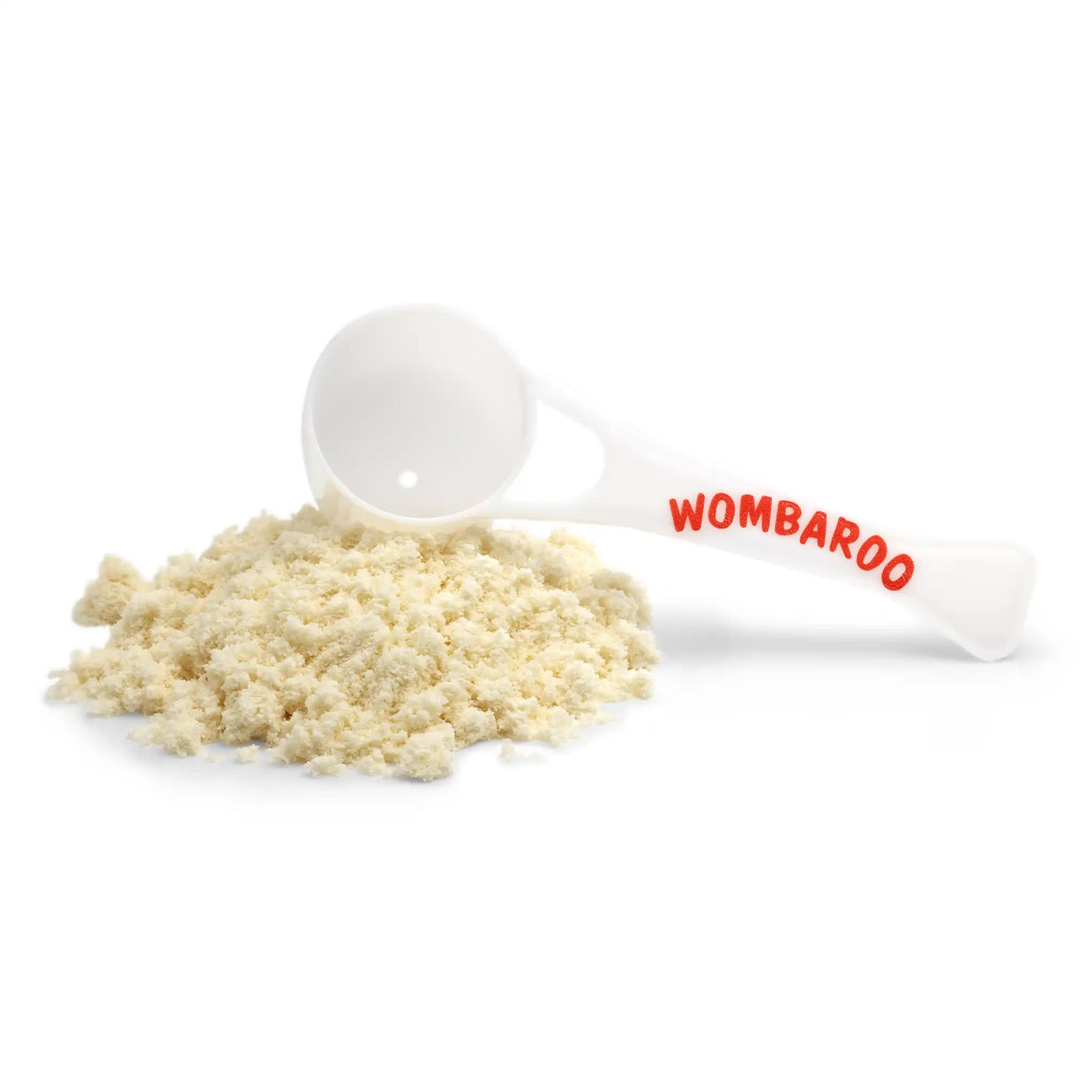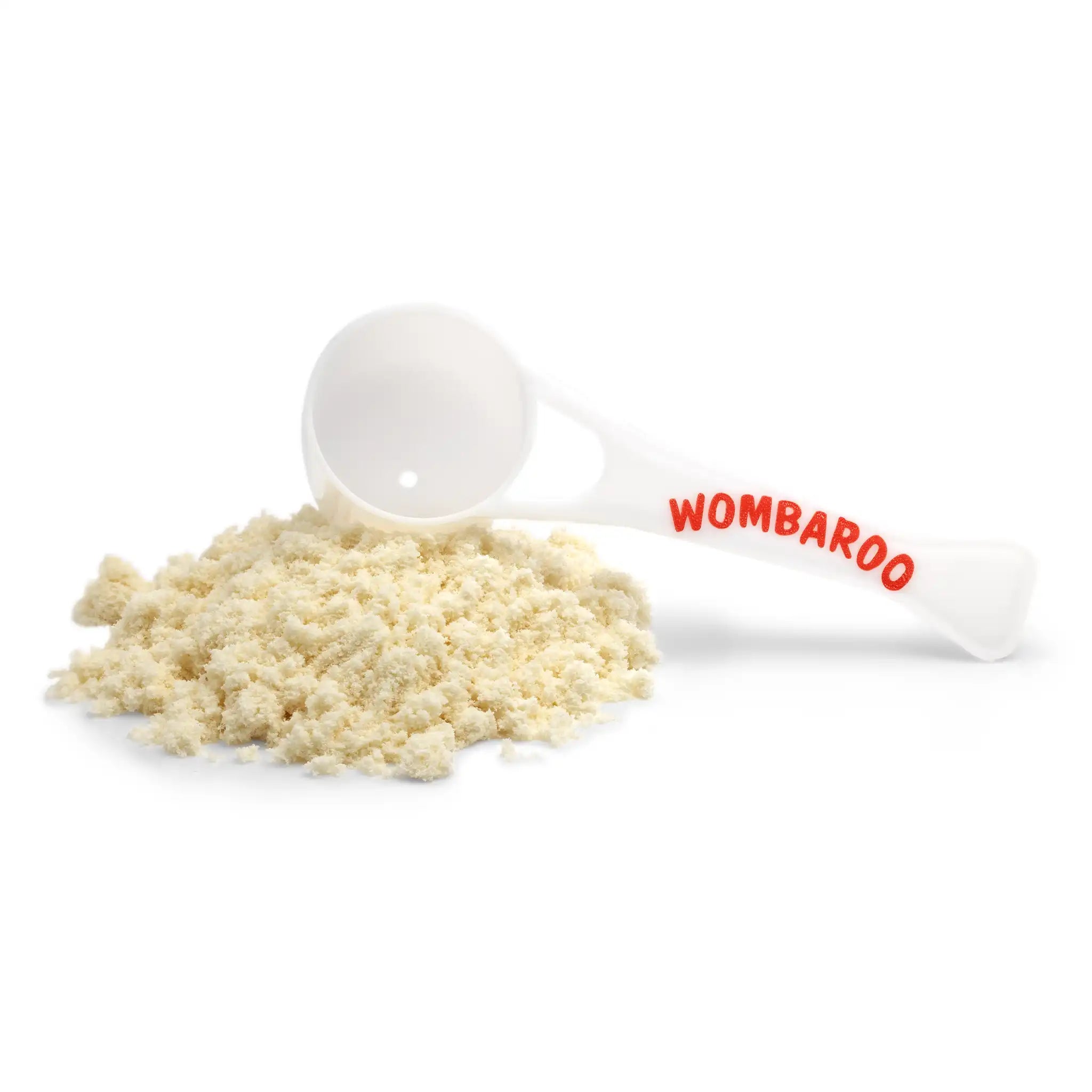Your cart (0)
Your cart is empty
Tax included and shipping calculated at checkout
Free Standard Shipping On U.S. Orders Over $100
Free Standard Shipping On U.S. Orders Over $100
Drawer menu
Tax included and shipping calculated at checkout
Subtotal: $0.00
This website uses cookies to ensure you get the best experience on your device.






High-quality, nutritionally-balanced milk substitute for all guinea pig breeds. The perfect formula for feeding orphaned pups, large litters, or as a supplement when the mother’s milk is limited. Specially formulated to match the composition of guinea pig milk, Wombaroo Milk Replacer contains high protein to aid growth and Vitamin C to support joint health.
Newborn guinea pigs that did not receive colostrum from their mother may benefit from Impact Colostrum Supplement.
Australian made high-quality milk replacers. Wombaroo’s team of experts has worked since 1984 to develop scientifically backed premium milk replacers and food for exotic animals. Wombaroo has developed products specifically for zoos and captive breeding programs to support wildlife conservation projects worldwide.
To make 35mL of milk: Mix 1 level scoop of powder (6.5g) with 30mL of warm water.
To make 1 liter of milk: Mix 190g of powder with 870mL of warm water.
First, add about half the water to the powder and mix into a paste. Then add the remaining water and mix thoroughly. Pre-boil the water to ensure it is sterilized. If the water is too hot it can cause the milk to curdle. If it is too cold then it will be difficult to disperse the powder. An electric whisk can be used for mixing larger quantities.
Milk can be stored in the fridge for a day or can be frozen for up to 2 weeks. You can save time by making larger quantities and storing it frozen in small portions (e.g. ice cube trays), so that the required daily feed volumes can be easily thawed out. Once thawed, discard any unused milk, and wash feeding utensils thoroughly.
Warm milk to about 95°F (35°C). Feed from a syringe or bottle with a teat. Feed every 2-3 hours for the first 5 days, reducing this to every 4-6 hours as pups get older. Once significant solid food is being consumed the quantity and frequency of milk feeds can be reduced accordingly. Pups will need to be stimulated to defecate and urinate in the first week of life. As pups are born well-developed and mobile, they may be encouraged to lap soon after birth. To avoid dehydration during periods of hot weather supply plenty of fresh water. Consult your veterinarian or breeder for particular advice about caring for young guinea pigs.
See back of the box for dosing instructions.
Whole milk solids, whey protein, casein, vegetable oils, omega-3 and omega-6 fatty acids, stabilized Vitamin C, vitamins A, B1, B2, B3, B5, B6, B9, B12,C, D3, E, K, biotin, folic acid, choline, calcium, phosphorus, potassium, sodium, magnesium, zinc, iron, manganese, copper, iodine, selenium.
Analysis
High-quality, nutritionally-balanced milk substitute for all guinea pig breeds. The perfect formula for feeding orphaned pups, large litters, or as a supplement when the mother’s milk is limited. Specially formulated to match the composition of guinea pig milk, Wombaroo Milk Replacer contains high protein to aid growth and Vitamin C to support joint health.
Newborn guinea pigs that did not receive colostrum from their mother may benefit from Impact Colostrum Supplement.
Australian made high-quality milk replacers. Wombaroo’s team of experts has worked since 1984 to develop scientifically backed premium milk replacers and food for exotic animals. Wombaroo has developed products specifically for zoos and captive breeding programs to support wildlife conservation projects worldwide.
To make 35mL of milk: Mix 1 level scoop of powder (6.5g) with 30mL of warm water.
To make 1 liter of milk: Mix 190g of powder with 870mL of warm water.
First, add about half the water to the powder and mix into a paste. Then add the remaining water and mix thoroughly. Pre-boil the water to ensure it is sterilized. If the water is too hot it can cause the milk to curdle. If it is too cold then it will be difficult to disperse the powder. An electric whisk can be used for mixing larger quantities.
Milk can be stored in the fridge for a day or can be frozen for up to 2 weeks. You can save time by making larger quantities and storing it frozen in small portions (e.g. ice cube trays), so that the required daily feed volumes can be easily thawed out. Once thawed, discard any unused milk, and wash feeding utensils thoroughly.
Warm milk to about 95°F (35°C). Feed from a syringe or bottle with a teat. Feed every 2-3 hours for the first 5 days, reducing this to every 4-6 hours as pups get older. Once significant solid food is being consumed the quantity and frequency of milk feeds can be reduced accordingly. Pups will need to be stimulated to defecate and urinate in the first week of life. As pups are born well-developed and mobile, they may be encouraged to lap soon after birth. To avoid dehydration during periods of hot weather supply plenty of fresh water. Consult your veterinarian or breeder for particular advice about caring for young guinea pigs.
See back of the box for dosing instructions.
Whole milk solids, whey protein, casein, vegetable oils, omega-3 and omega-6 fatty acids, stabilized Vitamin C, vitamins A, B1, B2, B3, B5, B6, B9, B12,C, D3, E, K, biotin, folic acid, choline, calcium, phosphorus, potassium, sodium, magnesium, zinc, iron, manganese, copper, iodine, selenium.
Analysis
